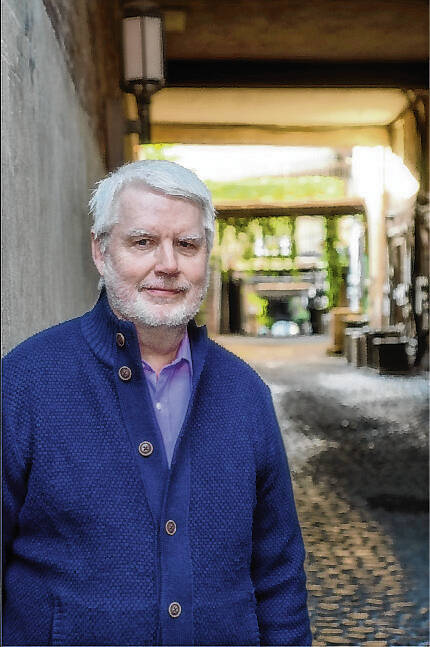There is a dark shadow hanging over our presidential election, and voters deserve to hear the candidates explain how they will deal with it. The shadow I’m referring to is Vladimir Putin, who is watching our election as closely as the most dedicated American pundit and planning his next move.
We all know that Putin, though technically the elected president of Russia, is a cynical opponent of democracy. He has ruled in Russia directly or indirectly for the past 25 years and has no other aspiration than for Russia to regain what he considers its leading role in the world. Invading Ukraine was just the first step in his broader plan to recover control and influence over Eastern European and other European countries.
It is vital that we understand Putin for who he is and what he stands for. First of all, he was a KGB operative in the latter years of the Cold War, someone schooled in ways to intimidate and terrify political opponents. In a way, the Cold War has never ended for Putin. Putin is not an updated version of Boris Yeltsin or Mikhail Gorbachev, but rather is the political descendant of Brezhnev and Stalin, Soviet dictators who viewed Western democracies as a threat. Putin acts like a Mafia boss, putting out contracts on dissidents who’ve escaped Russia and courageously speak out against him.
It is also necessary to see Putin as the first domino in a row. Behind him stand authoritarian rulers like China’s Xi Jinping, India’s Narendra Modi and others. With Putin, they share the belief that the era of dominance by Western democracies is nearing its end. In their view, the world map is ripe for major change.
After the persecution and enslavement of Muslim Uighurs and the crackdown against democracy in Hong Kong, China’s Xi Jinping has repeatedly stated his next objective, that being to absorb independent Taiwan. At the same time, he has threatened islands in the region that are claimed by the Philippines. India’s Narendra Modi, the leader of the world’s most populous nation, has stepped up his attacks on the 138 million Muslims in India.
Putin’s aggression in Ukraine should consequently not be viewed as an isolated action. If Ukraine falls because of reduced support from the U.S. and NATO, Taiwan’s independence is in serious jeopardy. Modi and other authoritarian leaders will also be emboldened to stifle democracy and reduce the rights of minorities.
All of this means that our next president will inherit a complex and tense global situation. Voters might be tempted to focus on domestic issues and pretend that the world as we know it will continue as it has been. But that is to ignore the dark shadow cast by Putin, Xi Jinping, and others.
In the final weeks of the campaign, we should demand that both candidates explain what stance they will take toward Putin and his ilk. We the voters have a right to know the line that each candidate is drawing in the sand, the line they will not let Putin, Xi Jinping and others cross.
David Carlson of Franklin is a professor emeritus of philosophy and religion. Send comments to [email protected].





